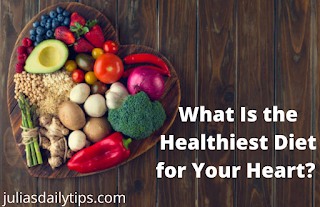The debate appears to be continuing; those that promote low-fat diets for a heart health claim that a low-crab, high-fat diet is bad for your heart. On the surface, it appears that this is correct. But is it? What Is the Healthiest Diet for Your Heart?
A recently published clinical experiment led by a doctor and researcher with extensive experience in heart and metabolic health came to some fascinating and unexpected discoveries. The participants were randomly assigned to one of three groups for this study. They adhered to the diets for 20 weeks. Each of the three diets had 20% protein but varied in carbohydrate and fat content. Participants in the study were given fully cooked, tailored meals to consume in the cafeteria or take home. So there was no guesswork involved in determining whether they ingested the recommended macro-nutrient levels.
The Following Is A Breakdown Of The Diets:
- Low-carbohydrate (20% carbohydrate, 21% fat)
- Moderate-carbohydrate: 40% carbohydrate, 14% fat
- Carbs-heavy: 60% carbohydrate, 7% fat
The astonishing results were disclosed at the end of the 20 weeks: “A high-fat, low-carbohydrate diet reduced insulin-resistant dyslipoproteinemia and lipoprotein(a) while having no negative effects on LDL cholesterol. Carbohydrate restriction may reduce CVD risk regardless of body weight, a concept that merits further investigation in large multi-center studies with hard outcomes.”
The researchers discovered that people who followed a low-carb, high-fat diet improved their triglycerides, adiponectin, blood pressure, and lipoprotein(a) more than those who followed a moderate or high-carb diet.
Note:
- Adiponectin is a fat-derived hormone that plays a crucial role in protecting against insulin resistance/diabetes and atherosclerosis.
- Lipoprotein(a)
is a protein that carries cholesterol in the bloodstream. It can induce
LDL cholesterol to build plaques on blood vessel walls, causing blood
vessels to constrict or block arteries to stiffen.
The increased saturated fat content did not affect cholesterol levels or cardiovascular indicators. That contradicts everything we’ve been told for years. It always boils down to the quality of the food and where the fat originates from, in my opinion. We’ve long been informed that saturated fat is a harmful chemical. Likely it depends on the source of the fat and how saturated fat affects your metabolic profile.












0 Comments